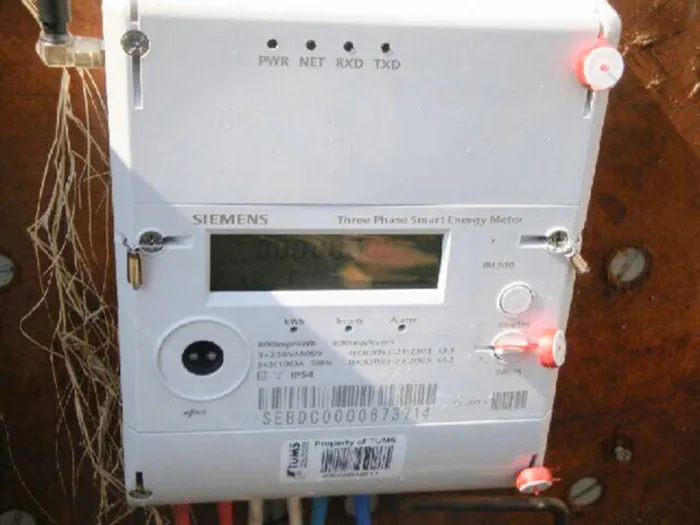R830m meter waste: Tshwane revokes deal

An example of the smart prepaid meters that were installed. An example of the smart prepaid meters that were installed.
Pretoria - The City of Tshwane has terminated its contract for the installation of smart prepaid meters with PEU Capital Partners with immediate effect – having already paid the service provider about R830 million for installing and operating just more than 12 000 meters.
The city announced the cancellation of the contract yesterday, saying the decision was largely based on the negative financial and economic impact of the project on the municipality. The terms of the cancellations are not yet known.
Municipal spokesman Selby Bokaba said the original intent of the project was to speedily install smart prepaid meters for all the city’s residents, commercial and residential.
The project was aimed at improving revenue collection on a “cash upfront” basis, as well as collection efficiency of electricity charges as well as other services.
It was further intended to reduce energy theft through meter bypassing as the smart prepaid meters had tamper alarms. The roll-out of the meters commenced in October 2013 with large power users.
Installation shifted to smaller users towards the end of last year, and 6 572 were installed at large users and 6 348 at small users.
“Since the inception of the project, the city has paid the service provider just over R830 290 787 in terms of the master services agreement between the two parties,” Bokaba said.
“However, like a spanner in the works, a court application by AfriBusiness to interdict and review the contract had the effect of impeding the speedy roll-out of the smart prepaid meters.
“The anticipated benefits have not been fully realised, and the project was becoming financially and economically unsustainable for the city. Since then, the city has engaged with AfriBusiness and PEU to find an amicable solution to the problem.”
Bokaba said the engagements had not yielded positive results, thus leaving the city with little choice but to issue a formal notice to terminate.
The review application brought by AfriBusiness is, however, still pending in the courts.
He said the city called an urgent meeting with the service provider to discuss the terms of the termination and ensure there was continuity of service to customers.
The city has also withdrawn its December 2014 application to the National Energy Regulator of South Africa to be exempted from a standard to regulate the metering of lower users. The city argued the meters provided additional benefits and were rolled out before the standard was promulgated.
The DA, which is due to host a media briefing on the impact of the smart metering contract on the city’s finances today, said a huge amount of money was wasted on the contract.
DA leader in the council Gert Pretorius said the municipality forged ahead with the contract despite a warning that it would cost the city dearly.
Money that was supposed to uplift the rendered services was wasted, he said. This was especially so to township communities which he said were losing “big time”.
The party’s finance spokesman, Lex Middelberg, said cancelling the contract was not the duty of the executive mayor and should be done by the council.
Middelberg said the contract should not have been entered into in the first place as it would have cost the people of the capital city R27 billion in the long run.
“We are glad the mayor has seen the light, but it is not up to him to cancel it. Terminating the contract does not deal with the issue of the money the city has already lost,” he said.
“In this financial year alone, R760 million has already been lost as a result of the contract. The city stands to pay huge cancellation fees too.”
The contract brought the city to its knees, he said, and its full consequences would be disclosed at the media briefing.
Willie Spies, legal representative for AfriBusiness, said the cancellation of the contract vindicated their position.
It proved AfriBusiness was right in that the contract had no benefit to the city nor its residents, he said.
It was costing ratepayers R1.2bn a year with no rewards whatsoever, he said.
“The contract was nothing but daylight robbery.
“Our greatest concern is that its cancellation can lead to settlement costing the city even further,” Spies said. “For this reason we will attack the validity of the process leading up to the transaction, the transaction itself and its cancellation.”
AfriBusiness had evidence to the effect that a secret deal was struck between the city and the contractor resulting in a payment of R800m a year, or R3m a day, he said.
kennedy.mudzuli@inl.co.za
Pretoria News